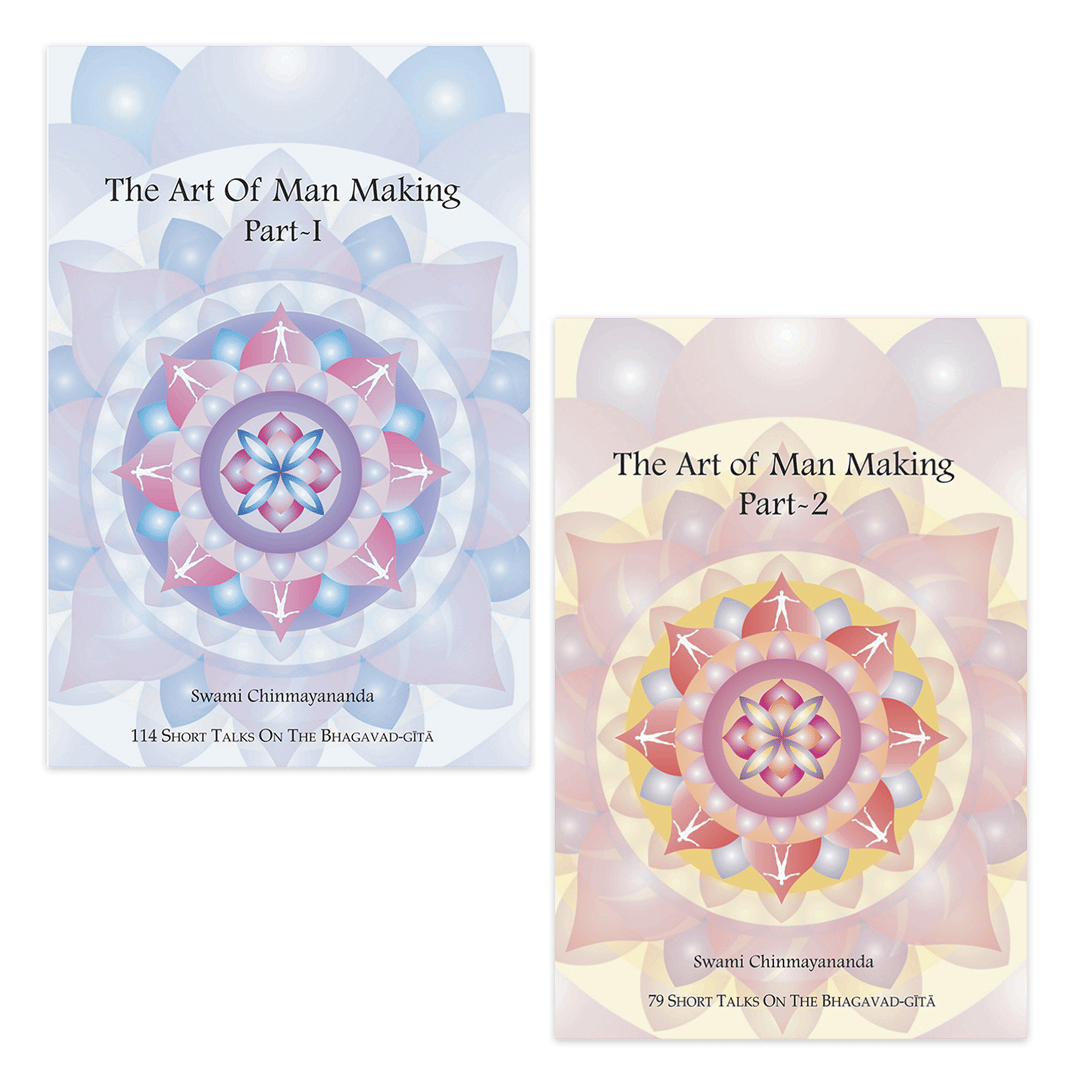Swami Chinmayananda
The Art of Man Making (Pack of 2) is backordered and will ship as soon as it is back in stock.
Couldn't load pickup availability
Make a bulk order enquiry
Product Description

Inspiring Right Living

Rooted in Wisdom

An Offering of Love

Product of Bharat
Product Description
In order to inspire the youngsters of India and show them the possibilities of a nobler life, Gurudev delivered a series of fiery 10-minute talks on All India Radio, based on the Bhagavad Geeta.
Pujya Gurudev Swami Chinmayananda made it a priority to revive the young generation of Indians who were drifting through life without any clear goals, vision or direction. He believed that growth of the newly independent India could only be achieved by a motivated and clear-headed generation of youngsters.
He gave this ancient wisdom a contemporary context and presented in a form that was palatable and practical to the modern youngsters.
Part I consists of 114 Short Talks on Bhagavad Geeta
Part II consists of 79 Short Talks on Bhagavad Geeta
Swamiji's commentary on the Bhagavad Geeta and Upanishads are considered one of the best ever for their clarity and crisp logic.











